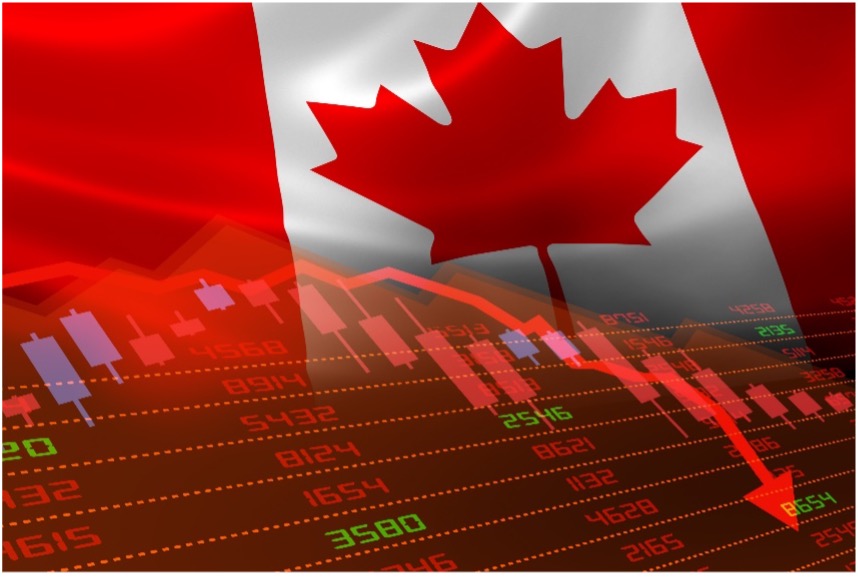A stock market pullback is a sudden and drastic devaluation of a major stock index, like the S&P/TSX Composite Index. Though it can happen alongside global catastrophes and larger economic crises, a stock market pullback is often the result of panicked investors selling shares en-masse, causing stock values to plummet by double digits.
With high inflation, a war in Europe, and a supply chain that continues to be clogged, many investors are feeling apprehensive about today’s global markets. Stock market indexes in both Canada and the U.S. have had dismal months in 2022 so far, with brief gains in market rallies getting entirely wiped out by larger market sell-offs.
If you’re afraid of a stock market correction, first, take a step back and breathe. Though corrections can be a stressful experience for a stock investor, they don’t have to be disastrous — you can be prepared.
Why would a market pullback? To put it simply, a market may pullback because of a combination of bad news and panic.
A market pullback usually comes after a period of sustained growth. When the economy is strong, when unemployment rates are down and traders are feeling optimistic, they’ll buy more stocks, driving prices upward. At a certain point, these prices can become inflated or they represent the over-exuberance of investors. At that point, all it takes is one unexpected event to startle traders and cause the mass panic that brings prices way down.
What should you do when the market adjusts?
When a crash does happen, you don’t have to throw your hands up and surrender. Here are three ways you can make it through any crash.
- 1. Refuse to panic-sell
- Be careful about making investment changes (selling your current pension units) out of fear. Panic-selling is a surefire way to lose money. In fact, selling at prices lower than what you paid is the only way to lose money in the market. When you feel the urge to sell, remind yourself that market adjustments are typically short-lived and by staying invested, you’ll get the full force of the market recovery. Before you sell anything, do your research and make an informed decision. Don’t let emotion take over.
- 2. Think long-term
- Make no mistake — stock market pullbacks are emotional, stressful and heart-wrenching. Shifting your thoughts from the here-and-now to the future reminds you that the game isn’t over, and you have plenty of time to recover. Turn off the news for a while, resist the urge to check your account balances, and delete your investing apps if you have to.
- 3. Keep a historic perspective
- Lastly, remember: that every market crash has a market rebound. No matter how low it dips, the market will recover. No stock market crash has ever, ever resulted in permanent losses. As our buddy Heraclitus said, the only constant in life is change. And yes, that change can be upward. In the context of pensions, WP can assist you in determining an investment mix tailored to you.
To discuss your investments, contact WP Pensions + Benefits.
